Samsung phones have an option of scheduled autorestart; I have mine set to restart once every week at a scheduled time.
A new class of antibiotics capable of combating multi-drug resistant bacteria and treating bloodstream infections in mice has been unveiled by Uppsala University scientists. Scientists at Uppsala University have discovered a new class of antibiotics with potent activity against multi-drug resista
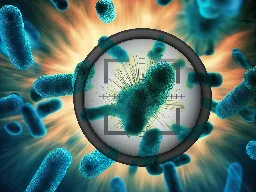
This study describes the identification of an antibiotic class acting via LpxH, involved in lipopolysaccharide synthesis having potent in vivo efficacy against bloodstream infections caused by the critical Gram-negative pathogens E. coli and Klebsiella pneumoniae. Further development of this class of antibiotics could make an important contribution to the ongoing struggle against antibiotic resistance.
https://www.pnas.org/doi/10.1073/pnas.2317274121 (open access)
Researchers at Columbia University have identified a genetic variant that may lower the risk of Alzheimer's disease by as much as 70%, potentially protecting thousands of people across the United States from developing the condition. The discovery of the protective variant, which appears to allow
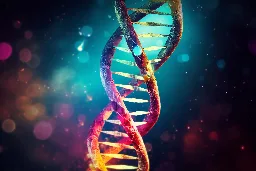
This study attempts to identify the “protective” genetic factors that can modify or reduce the effect of APOEε4 on Alzheimer’s disease risk and to identify new pathogenic mechanisms, proteins, and pathways that inform development of therapeutic targets and diagnostics.
https://link.springer.com/article/10.1007/s00401-024-02721-1 (open access).
Brief anger can temporarily impair blood vessel function, potentially heightening heart disease and stroke risks, finds new study in the Journal of the American Heart Association. When adults became angry after remembering past experiences, the function of cells lining the blood vessels was neg

Brief anger can temporarily impair blood vessel function, potentially heightening heart disease and stroke risks, finds new study in the Journal of the American Heart Association.
I am presently loving Twinings green tea. I get it from amazon.
I'm very new to using rss. Recently I have come across people mentioning about adding rss feeds of youtube channels to rss readers. I'm curious to know how to get the URL of youtube channel rss so I could add it to my reader (I hope I am wording it correctly). I am using feeder app.
I have frequently used tts for listening to epubs. I have, however, not noticed much battery drain... And it's not as enjoyable as listening to an audiobook read by a narrator you like but it kind of works to a certain extent. So I wish you tts would get better.
The monkey’s creation paves the way for scientists to use chimaeric primates to study human diseases.

Scientists have created an infant ‘chimeric’ monkey by injecting a monkey embryo with stem cells from a genetically distinct donor embryo. The resulting animal is the first live-born chimeric primate to have a high proportion of cells originating from donor stem cells. However, the monkey had to be euthanized when it was only ten days old, due to health issues, thereby raising ethical concerns. DOI: 10.1016/j.cell.2023.10.005
I hardly remember my dreams and when I do (which is usually if it has been interesting) I generally wake at some crucial point which is very annoying.
Great example! Just read the book recently and loved it. The whole tavern conversation between the two brothers was very philosophically dense and insightful.
I usually browse once a day so sort by top day. Sorting by new shows up content I've seen before after browsing for a while. With top day my feed ends when there are no more posts for the day. Also sorting by new shows up more posts than top day and I waste more time. Sorting by active brings up older posts commenting on which will probably bring less interaction. I am looking forward to trying the new weighted sorting order coming up with the next lemmy update (I am forgetting what it’s called).
Aww most adorable land mowers!
Thank you for this nuanced and unbiased write up. I have been actively avoiding this topic online and this helped me to get an idea about the background of the war going on now.
Got fed up with youtube algorithm shenanigans among other things and am just sticking to newpipe.
I want TTS made better with AI so that I won't need huge audiobooks filling up my phone. The epubs that I already have would serve as audiobooks when needed.
Hey that sounds really cool. I'll check that out.
OK understood why you prefer bluesky.
One of the things I really like about Mastodon is that I can curate my feed to show only what I am interested in by following hashtags and/or people and muting those people whose posts I don't want to see. There's no hidden algorithm controlling my feed, pushing controversial posts towards me and other stuff. So I don't get why would you need the invite only feature of bluesky control your feed?
Really, variety of options and potential interlinkage with other kinds of Fediverse projects is what really excites me about the Fediverse.
Lol that's an interesting idea!
Oh yes, this reason makes sense.
Using CRISPR-Cas9 gene-editing technology, researchers modified the DNA of silkworms so that their silk-producing glands would instead create spider silk.
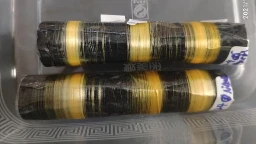
Chinese Scientists have introduced an innovative, green alternative to nylon and Kevlar
How exactly do we best harness the Sun's energy and what are the most recent technological advancements in solar energy?

Taking a look at how the use of solar energy has evolved, from ancient civilizations leveraging passive sunlight to modern photovoltaic milestones.
I guess different people have different use cases. I am enjoying Mastodon and have had positive interactions with people. I have also found a lot of good quality content there. Additionally, I totally avoid political stuff so haven't had any issues of political stuff messing up my feed. IMO the invite only thing is just increasing attractiveness by creating artificial scarcity.
NASA is in the final stretch of its mission to prevent asteroid Bennu from hitting Earth.

Astronomers have been closely monitoring Bennu, which swings close to Earth every six years. However, the real cause for concern arises from the possibility that on September 24, 2182, Bennu could collide with our planet with a force equivalent to 22 atomic bombs. While the odds of such a catastrophic strike are estimated at 1 in 2,700, NASA is not taking any chances.
The newly discovered letter, written by a German Jesuit to Pope Pius XII’s personal secretary, suggests that the pope knew of Hitler’s atrocities but chose to remain silent.

The newly discovered letter, written by a German Jesuit to Pope Pius XII’s personal secretary, suggests that the pope knew of Hitler’s atrocities but chose to remain silent.
The nations are taking bold steps in the espionage shadow war to try to collect intelligence on leadership thinking and military capabilities.

The nations are taking bold steps in the espionage shadow war to try to collect intelligence on leadership thinking and military capabilities.
Attached: 1 image #puppers #dogs #pupper #woof #images #doggo #photos #bark

Four-year-old Gingee has had her paws on a child's spade, pair of goggles, sieve and even a knife.

Feline thief Gingee, a four-year-old Maine Coon, has been ransacking nearby homes in Buckley, Flintshire.
The most startling moment for owners Jay Phoenix, 43 and Mathew Westlake-Toms, 31, was when Gingee delivered a stolen knife to their bedroom at night.

The concrete dome of the Pantheon in Rome remains stable enough for visitors to walk beneath, and some Roman harbours have underwater concrete elements that have not been repaired for two millennia – even though they are in regions often shaken by earthquakes.
Whence this remarkable resilience of Roman concrete architecture? It’s all down to the chemistry.
T cells recognize and kill cancer cells but quickly lose their effectiveness. This fast dysfunction may help explain why immunotherapy doesn’t lead to long-term remission for many patients.
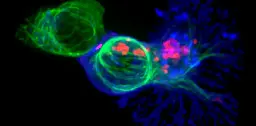
A key function of our immune system is to detect and eliminate foreign pathogens such as bacteria and viruses. Immune cells like T cells do this by distinguishing between different types of proteins within cells, which allows them to detect the presence of infection or disease.
A type of T cell called cytotoxic T cells can recognize the mutated proteins on cancer cells and should therefore be able to kill them. However, in most patients, cancer cells grow unchecked despite the presence of T cells.
The current explanation scientists have as to why T cells fail to eliminate cancer cells is because they become “exhausted.” The idea is that T cells initially function well when they first face off against cancer cells, but gradually lose their ability to kill the cancer cells after repeated encounters.
Cancer immunotherapies such as immune checkpoint inhibitors and CAR-T cell therapy have shown remarkable promise by inducing long-lasting remission in some patients with otherwise incurable cancers. However, these therapies often fail to induce long-term responses in most patients, and T cell exhaustion is a major culprit.
We are researchers who study ways to harness the immune system to treat cancer. Scientists like us have been working to determine the mechanisms controlling how well T cells function against tumors. In our newly published research, we found that T cells become exhausted within hours after encountering cancer cells. T cells recognize tumor cells by the specific proteins called antigens they display on their surfaces. Timing T cell exhaustion
By the time most patients are diagnosed with cancer, their immune system has been interacting with developing cancer cells for months to years. We wanted to go back earlier in time to figure out what happens when T cells first encounter tumor cells.
To do this, we used mice genetically engineered to develop liver cancers as they age, similarly to how liver cancers develop in people. We introduced trackable cytotoxic T cells that specifically recognize liver cancer cells to analyze the T cells’ function and monitor which of the genes are activated or turned off over time.
We also used these same trackable T cells to study their response in mice infected with the bacteria Listeria. In these mice, we found that the T cells were highly functional and eliminated infected cells. By comparing the differences between dysfunctional T cells from tumors and highly functional T cells from infected mice, we can home in on the genes that code for critical proteins that T cells use to regulate their function.
In our previous work, we found that T cells become dysfunctional with dramatically altered genetic structure within five days of encountering cancer cells in mice. We had originally decided to focus on the very earliest time points after T cells encounter cancer cells in mice with liver cancer or metastatic melanoma because we thought there would be fewer genetic changes. That would have allowed us to identify the earliest and most critical regulators of T cell dysfunction.
Instead, we found multiple surprising hallmarks of T cell dysfunction within six to 12 hours after they encountered cancer cells, including thousands of changes in genetic structure and gene expression.
Harmful algal blooms are taking over as the world warms and grows richer in carbon dioxide—and there’s no easy fix.

Harmful algal blooms are taking over as the world warms and grows richer in carbon dioxide—and there’s no easy fix.
3,3′-Diindolylmethane (DIM) decreased the Streptococcus mutans biofilm, a leading contributor to plaque and cavities, by 90%. A significant portion of the global population experiences persistent issues with dental plaque and cavities or will face them at some time. While toothpaste, mouthwash, and
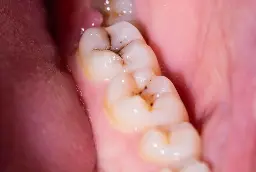
Scientists have discovered that the molecule DIM reduces biofilms causing dental plaque by 90%. Its addition to toothpaste and mouthwash could revolutionize dental hygiene. 3,3′-Diindolylmethane (DIM) decreased the Streptococcus mutans biofilm, a leading contributor to plaque and cavities, by 90%.
A significant portion of the global population experiences persistent issues with dental plaque and cavities or will face them at some time. While toothpaste, mouthwash, and routine dental visits help in prevention, there’s always room for improvement.
Researchers from Ben-Gurion University of the Negev, in collaboration with teams from Sichuan University and the National University of Singapore, have identified that 3,3′-Diindolylmethane (DIM) – a naturally occurring molecule also referred to as bisindole – can reduce biofilms responsible for plaque and cavities by a remarkable 90%.